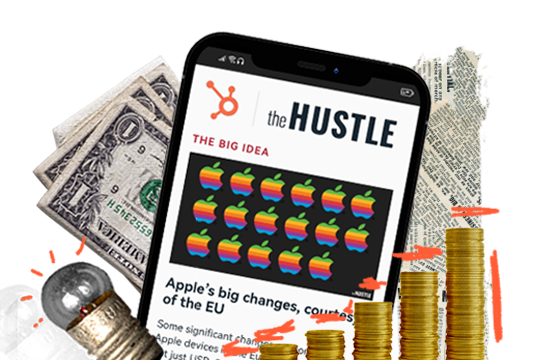- The Modern Warfare
- Posts
- Musk at the Helm: Can Elon Navigate U.S.-China Relations?
Musk at the Helm: Can Elon Navigate U.S.-China Relations?
From Tesla to Diplomacy: The Business Titan's Uncertain Role in Geopolitical Chess
Paying the bills
Our newsletter is powered by beehiiv, which partners with trustworthy and high-quality advertisers.
Conquer Winter in Style: Best Men’s Sneakers from Nike Air Max.
Winter is here, and it’s time to elevate your look while staying warm and comfortable. The Nike Air Max collection is perfect for the modern man ready to tackle the season. From the edgy Air Max Plus to the versatile AM1, these sneakers combine style with features designed to keep your feet happy all winter long.
Whether you're tackling holiday shopping or celebrating with friends, these kicks are your perfect companion. Find your ideal pair and effortlessly elevate your winter wardrobe this season.
Treat yourself or a loved one to a stylish pair from the collection this holiday season.
Today’s partners
Links We Like
The @SpaceX@Starlink system will ensure that your phone always has connectivity.
No more cell phone dead zones!
— Elon Musk (@elonmusk)
12:43 AM • Dec 17, 2024
What do the hotspots correlate to?
— Chamath Palihapitiya (@chamath)
3:06 AM • Dec 18, 2024
Navigating the Crossroads of Business, Politics, and Diplomacy: Elon Musk's Role in U.S.-China Relations
Elon Musk’s business empire, spanning from electric vehicles to space exploration, has placed him at the center of a complex geopolitical landscape. His close ties to both the United States and China have raised questions about his potential to influence international relations, particularly between the two global superpowers. As relations between the U.S. and China continue to evolve under rising tensions, Musk's unique position could play a pivotal role in shaping the future of these interactions. However, experts caution that his ability to act as a modern-day diplomatic intermediary, akin to Henry Kissinger, remains uncertain.
Musk’s Complex Relationship with China
Elon Musk’s connection to China is undeniable, particularly through his electric vehicle company, Tesla. Tesla’s Shanghai gigafactory has become a critical component of the company’s global operations, producing a significant portion of its vehicles for both the Chinese market and international markets. China has proven to be an essential market for Tesla, with sales in the country consistently ranking as one of the highest globally. However, Musk’s standing in China is not without its challenges.
Despite his considerable presence in the country, Tesla faces intense competition from local players such as Nio, BYD, and XPeng, all of which have garnered strong government support. These companies, alongside state-controlled financial institutions that have pumped billions into the domestic electric vehicle industry, pose a formidable challenge to Tesla’s market share in China. Compounding this issue is the regulatory environment, which has been less than favorable for Tesla's ambitions. While Musk has made strides in securing Tesla’s position within China, the company is still awaiting approval for its full self-driving technology, a significant setback considering the rapid advancements made by local competitors in autonomous driving.
Musk’s other ventures, such as SolarCity and his Boring Company, also find themselves in a competitive race with Chinese firms. China has emerged as a dominant player in the solar industry, and state-backed companies in the country are investing heavily in similar sectors that Musk’s businesses aim to capitalize on. For example, Chinese firms are leading in the production of solar panels and large-scale battery systems, which are essential to the clean energy revolution Musk has championed.
The Uncertain Role of Musk as a Diplomatic Intermediary
Musk’s business empire is not the only factor that has put him under the microscope of U.S.-China relations. Given his relationship with former U.S. President Donald Trump and his outspoken political views, many have speculated that Musk could help mediate tensions between the U.S. and China. However, experts warn against overestimating his influence as a diplomatic actor in the vein of Henry Kissinger, who famously helped normalize relations between the U.S. and China during the Nixon administration.
Musk’s interactions with high-ranking Chinese officials, such as his meetings with Premier Li Qiang, have sparked some hope in Beijing that he could play a role in easing tensions between the two countries. Some analysts suggest that Musk, with his deep understanding of both the U.S. and Chinese markets, could potentially act as a bridge between the two nations, advocating for a reduction in tariffs and greater cooperation on technological innovation. However, experts like Scott Kennedy, senior adviser at the Center for Strategic and International Studies, caution that it is premature to view Musk as a “modern-day Kissinger.” While his business acumen may earn him some favor in China, his primary focus remains on his companies, not on advancing diplomatic efforts.
Musk’s business interests in China, which include not only Tesla but also ventures in space exploration through SpaceX, are increasingly at odds with the strategic objectives of both the U.S. and China. As Beijing continues to assert its dominance in high-tech industries, Musk finds himself competing with government-backed Chinese firms in sectors such as electric vehicles, space technology, and energy production. The fierce competition in these sectors complicates Musk’s ability to act impartially as a diplomatic intermediary, especially when his businesses are directly impacted by Chinese policies.
Refind - Brain food is delivered daily. Every day we analyze thousands of articles and send you only the best, tailored to your interests. Loved by 510,562 curious minds. Subscribe. |
Musk’s Influence on U.S. Policy and Trade Relations
Musk’s strong ties to both the U.S. and China place him in a delicate position when it comes to U.S. trade policy, particularly concerning tariffs and the broader trade war between the two nations. President Trump’s tough stance on China and the implementation of tariffs during his first term have been a point of contention for Musk, whose companies rely on Chinese manufacturing and markets. However, while Musk has voiced his concerns about these trade policies, he has yet to emerge as a vocal advocate for policy changes or a central figure in influencing U.S. government decisions.
One of Musk’s most notable critiques of the U.S. government has been the Biden administration’s decision to impose tariffs on Chinese electric vehicles. Musk has expressed frustration that these policies could hamper Tesla’s growth, especially as Chinese automakers continue to innovate and expand. In particular, Chinese competitors are introducing advanced autonomous driving technologies, while Tesla’s own self-driving capabilities remain stalled in regulatory limbo. The competitive edge that Chinese companies have in this sector poses a significant threat to Tesla’s market position, further complicating Musk’s relationship with both the U.S. and Chinese governments.
Despite these challenges, some analysts believe that Musk’s close ties to both sides of the political spectrum could give him a unique ability to influence U.S. policy in favor of a more balanced approach to China. His vocal support for Trump and his participation in the political process could position him as a potential intermediary in trade negotiations or other diplomatic efforts. However, this is far from guaranteed, and many experts believe that Musk’s primary motivation will always lie with his business ventures, not with altering the course of international diplomacy.
The Future of U.S.-China Relations and Musk’s Role
Looking ahead, it is clear that U.S.-China relations will remain a key area of focus for global business leaders and policymakers alike. Musk’s role in this evolving dynamic will be shaped by the complex interplay of business interests, political alliances, and regulatory hurdles. While he may not possess the same diplomatic weight as Henry Kissinger, his influence as a business leader cannot be dismissed. As China continues to rise as a technological powerhouse, Musk’s ability to navigate this landscape will likely play a crucial role in determining the future of U.S.-China relations.
Conclusion: A Businessman in the Political Arena – Can Musk Bridge the Gap?
In conclusion, Elon Musk’s position at the intersection of high-tech industries, U.S.-China trade, and global politics puts him in a unique and influential position. However, the idea that he could act as a diplomatic mediator akin to Henry Kissinger may be overly optimistic. While Musk’s understanding of both the U.S. and Chinese markets may allow him to influence certain aspects of the relationship, his primary allegiance lies with his business ventures. As tensions between the U.S. and China continue to grow, Musk’s ability to balance his commercial interests with any potential diplomatic role will be closely watched. However, as many experts have pointed out, pinning hopes on a single individual—no matter how influential—may ultimately be a miscalculation. The future of U.S.-China relations is likely to be shaped by a broader coalition of leaders, businesses, and policymakers, with Musk playing an important but uncertain part in the ongoing dialogue.
If you enjoy this newsletter, please consider sharing it with your friends and business contacts by clicking the button below. ⬇️
Thank you for reading this far. Please share your thoughts and join the conversation in the comment section below.
About The Modern Warfare
We strive to provide insightful and unbiased reporting on the most pressing issues of our time. Subscribe to our newsletter to stay informed and ahead of the curve.
Stay informed. Stay vigilant. Stay ahead.
The Modern Warfare Team
Disclaimer: This newsletter is for informational purposes only and should not be construed as financial or political advice.







